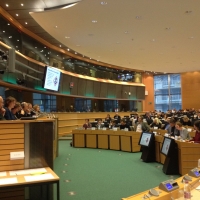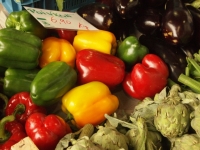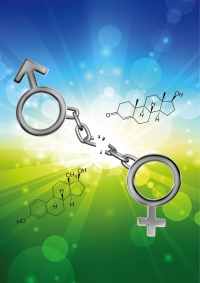Press releases
EUROPEANS JOIN FORCES calling for a higher level of protection from pesticides: European regulators are letting the citizens of the EU down by allowing the use of harmful pesticides in agriculture and public green areas based on an ‘unfit for purpose’ risk assessment regime that relies on pesticide industry generated toxicity studies.
We, the organisers of the European Citizens’ Initiative to Ban glyphosate and protect people and the environment from toxic pesticides, call on the European Parliament, Council of Ministers and European Commission to conclude the decision-making process for greater transparency of food safety decisions before the upcoming European election.
Read further the Press Release.
At a meeting on 23-24 October[1] 2018, European Commission Directorate General for Health will propose to EU Member States a ban on 11 pesticide active substances. Most of the active substances concerned have been available on the EU market for decades, finally the risks they pose to either human health or the environment have been deemed unacceptable by the European Food Safety Authority (EFSA).
PAN Europe has published today its position paper[1] proposing how the European Commission’s legislative proposals on the New Delivery Model of the EU’s Common Agricultural Policy (CAP) should be changed to deliver on reducing EU’s dependency on pesticides.
Members of the European Parliament and European mayors who have gathered today at the European Parliament for a roundtable to discuss European policies, local strategies and future perspectives for pesticide free towns have signed a joint declaration calling on the European Institutions for a total ban on non-agricultural uses of pesticide.
The urgent need to improve the European Pesticide Regulation and its implementation, highlights the European Parliament in its draft report published today. The effectiveness of Regulation (EC) 1107/2009 to protect human, animal and environmental health from pesticides, requires changes in the whole pesticide approval procedure: from the industry’s application to get a pesticide active substance authorised, to the sale and use of the product containing the substance in EU countries.
As discussions about a European Commission proposal on the transparency of EU food safety data are underway in both the European Parliament and the Council of the European Union, organisers of the #StopGlyphosate European Citizens’ Initiative today warned that to live up to its promising objectives, the proposal must be amended.
Read the Press Release here>>
Food Authority EFSA published this week its pesticide residue monitoring report (data for 2016) on the level of contamination of vegetables and fruit in European food outlets[1]. The percentage of multiple residues in consumed European vegetables and fruit increased again to the extreme high rate of 30,1 % as the graph below shows. Almost 1 in 3 of all fruit/vegetable-products sold in Europe contain more than one pesticide contaminant.
The Health and Environment Alliance (HEAL), Pesticide Action Network (PAN) Europe, Nature et Progrès Belgique, WeMove.EU and SumofUs today officially applied before the Court of Justice of the European Union for joining the legal challenge initiated by the Brussels Region against the European Commission over the decision to renew the authorisation licence for glyphosate, the world’s most-selling herbicide.
Europeans and the environment will continue to be exposed to pesticides that cause endocrine-related diseases to humans, animals and wildlife, according to this week’s Commission’s proposal. The proposal is an amendment to the regulation of Endocrine Disrupting (ED) pesticides (1107/2009, Annex II 3.6.5. and 3.8.2) to introduce the unrealistic and dangerous concept of ‘negligible risk’ and increase the presence of these harmful substances in our food by hundreds or thousand times.



